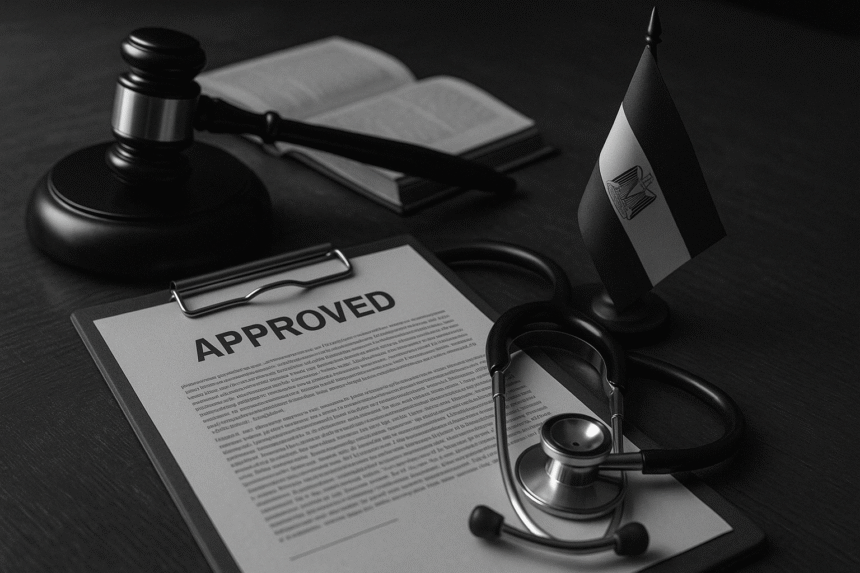Registration and Approval from Local Authorities
Before you can export a medical device to Egypt, it must be registered and approved by Egyptian regulators. The key body handling this process is the Egyptian Drug Authority (EDA) through its Medical Devices and Supplies Administration.
Key Requirements:
- Authorized Local Agent: You must appoint a local representative registered with the EDA
- Device Classification: Devices are categorized based on risk (Class I to Class III)
- Technical Dossier Submission:
- Product description
- Certificates of conformity (CE, FDA, ISO)
- Clinical evaluation or test data
- Instructions for use (in Arabic and English)
- Marketing Authorization Certificate: Issued upon approval, required for customs clearance
For higher-risk products, additional technical or safety reviews may be requested.
Labeling, Standards, and Certifications
Product labeling and documentation must meet specific Egyptian standards to enter the market.
Labeling Requirements:
- Arabic labeling is mandatory
- Labels must include:
- Product name and model
- Manufacturer and importer details
- Country of origin
- Storage conditions
- Expiry date (if applicable)
Technical Standards:
- Devices must conform to international safety and performance standards (ISO 13485, IEC standards)
- A Certificate of Free Sale (from country of origin) is often required
Improper or incomplete labeling is a common cause of border delays and product rejection.
Export Procedures and Customs Regulations
Getting medical devices through Egyptian customs is a regulated process involving health, customs, and port authorities.
Steps to Follow:
- Pre-approval from the EDA
- Electronic filing through NAFEZA: Egypt’s national single window for foreign trade
- Customs Documentation:
- Commercial invoice
- Bill of lading
- Packing list
- Certificate of origin
- Inspection and Sampling: Some shipments are randomly inspected
Customs Notes:
- Egypt applies tariffs based on HS codes, which vary by device type
- Most devices are exempt or subject to reduced tariffs under trade agreements (e.g., COMESA, EU-Egypt Association Agreement)
Working with a licensed customs broker in Egypt is highly recommended.
Distribution Contracts and Liability Terms
Exporting medical devices isn’t just about shipping—it’s about legal risk allocation once your product is in the Egyptian market.
Key Contract Clauses to Include:
- Territory and exclusivity: Define if the distributor is exclusive or not
- After-sales service: Clarify warranty handling and technical support
- Product liability: Assign responsibility in case of malfunction or injury
- Regulatory compliance: Ensure the distributor follows local post-market surveillance and adverse event reporting
- Termination terms: Protect your rights in case the distributor fails to perform
Always draft distribution contracts that comply with both international trade law and Egyptian commercial law.
Protecting Your Product-Related Intellectual Property (IP)
Counterfeiting and IP violations remain concerns in the medical device market. To protect your designs, software, and trademarks, take proactive legal steps.
IP Protections for Exporters:
- Trademark Registration in Egypt: Register product names and logos locally
- Patent Filing: If your device contains a novel feature, consider local patent protection
- Copyrights: Protect manuals, software, or interface elements
- NDAs and NNN Agreements: Use strong confidentiality clauses when dealing with agents or manufacturers
The Egyptian Office for the Protection of Intellectual Property Rights handles filings and enforcement.
Conclusion
Selling medical devices in Egypt offers real commercial potential—but success begins with compliance. By understanding the legal requirements for exporting medical devices to Egypt, you reduce risk, ensure faster market entry, and build trust with partners and regulators.
From registration and labeling to contracts and IP protection, every step matters. Partner with a local legal expert or trade advisor to tailor your compliance strategy and keep pace with regulatory updates.
With the right legal foundation, Egypt can become a key growth market in your international expansion strategy.



Leave a Reply